FREEDOM AND THE END OF REASON
On the Moral Foundation of Kants Critical Philosophy
Richard L. Velkley

The University of Chicago Press
Chicago & London
The University of Chicago Press, Chicago 60637
The University of Chicago Press, Ltd., London
1989 by The University of Chicago
All rights reserved. Published 1989.
Paperback edition 2014
Printed in the United States of America
23 22 21 20 19 18 17 16 15 14 2 3 4 5 6
ISBN-13:978-0-226-85260-7 (cloth)
ISBN-13:978-0-226-15517-3 (paper)
ISBN-13:978-0-226-15758-0 (e-book)
DOI:10.7208/chicago/9780226157580.001.0001
LIBRARY OF CONGRESS CATALOGING-IN-PUBLICATION DATA
Velkley, Richard L.
Freedom and the end of reason : on the moral foundation of Kants critical philosophy / Richard L. Velkley.
p. cm.
Includes index.
ISBN 0-226-85260-1
1. Kant, Immanuel, 17241804. 2. ReasonHistory18th century. 3. TeleologyHistory18th century. 4. Ethics, Modern18th century. 5. LibertyHistory18th century. 6. Rousseau, Jean Jacques, 17121778Influence. I. Title.
B2798.V37 1989
193dc19
88-8029
CIP
 This paper meets the requirements of ANSI/NISO Z39.48-1992 (Permanence of Paper).
This paper meets the requirements of ANSI/NISO Z39.48-1992 (Permanence of Paper).
To my mother and the memory of my father
This new doctrine [of Kantian idealism] is not an object for curiosity, nor a passing fashion, nor is it a system in the ordinary sense, like so many which are useless and devoid of meaning. Rather it is the genius of living in harmony with virtue, subordinated to a rule of the greatest certainty and rigor, embracing and organizing the totality of human intellectual and moral faculties.
FRIEDRICH SCHLEGEL
The philosopher is not a misologist, but rather a lawgiver of human reason, and the preeminent laws are those limiting the pretensions of reason for the sake of humanitys end.
IMMANUEL KANT
Contents
Preface
Interpretations of Kants project of a criticism of reason tend to focus on one question: What is the primary intent of Kants account of the conditions and limits of the human cognitive powers? Generations of thinking about Kant have resolved this question into the consideration of four major historical alternatives. Is Kants critique an all-destroying consummation of the skeptical and scientific Enlightenments discrediting of speculative metaphysics? Or is it a vindication of the natural human interest in metaphysics, and therewith of the metaphysical tradition from Plato to Leibniz? Is it a rejection of scientific realism identifying things in themselves with the object of modern scientific knowledge, whereby Kant initiates the metaphysics of freedom seeking to limit or transform science for the sake of a new moral idealism? Or is Kants criticism directed at Humes skepticism, laying the foundations of a transcendental defense of the objectivity of science and ordinary experience?
While the answer must be that the Kantian critique is somehow all of these, it is not primarily any one of them. Rather, it is possible to uncover a level of this criticism of reason that embraces these alternatives while pointing beyond them to another dimension. That dimension of the problem of reason is a teleological one; it consists of Kants wrestling with the question of the telos of reason itself. Teleology here does not chiefly refer to the reflection on the final causal ordering of the natural whole. The stress in Kants questioning is on the perplexities of human purposiveness and self-determination. Central among these perplexities is the question of the place of philosophic reason in human lifethe relation of such reason to the human good, social and individual. Kants foremost instructor and inspirer in this reflection is Jean-Jacques Rousseau. By making evident to Kant reasons tendency to dialectic and to crisis, and thus by exposing the necessity for a new consideration of the end of reason, Rousseau provides a fundamental (and generally neglected) level of reasons self-criticism.
This essay is a historical inquiry that seeks to lay bare that hidden level of the Kantian critique. It takes the form of a study of the origins of Kants mature philosophy, from the perspective of the precritical writings of the 1760s. It investigates the sources of Kants conception and redefinition of reason and preeminently examines Rousseaus presence in that redefinition. There has hitherto been no analysis of Kants writings from the standpoint of the Rousseauian elements in the critical account of reason. My hope is that such an inquiry will contribute to an understanding of Kants fundamental philosophical motives, of modern approaches to reason, and of the recurrent crises in modern reason.
The major concerns of this essay revolve around three theses: first, that the transcendental turn which forms what is most distinctive in the Kantian account of reason is conditioned by a prior Rousseauian turn in Kants thought; second, that the latter turn introduces an essential shift in Kants determination of the end of reason based on new understandings of freedom and of reason as a whole; and third, that the Kantian revolution in the end of reason is a response to a crisis in reason emerging in the eighteenth century on the basis of the modern foundations established a century earlier, relating centrally to the Enlightenment view of human reason and the human good.
Alexis de Tocqueville, the last centurys leading critic of the extreme rationalism of the theorists and political leaders of the French Revolution, offers us a starting point for the reflection on the crisis of reason in Kants time. The various political programs that led to the revolution had one point in commonthe belief that the complex of traditional customs governing the social order of the day should be replaced by simple, elementary rules deriving from the exercise of human reason and natural law. This idea, which had haunted mens imaginations off and on for three millennia, only at this time succeeded in making itself accepted as a basic principle. Tocqueville notes the new status of theory within practical life: philosophy had become the dominating force in the world, at least in human self-understanding. Whereas the remaking of political life in the image of philosophic reason was in the past a purely theoretical possibility entertained by certain thinkers, now general and abstract theories of the nature of society were the daily topic of passionate conversation for all classes.
This was not altered by subsequent developments. Much of the nineteenth century politically and philosophically was an effort to rectify the errors of the revolution and its theorists, without abandoning modern progressive ideals. Nonetheless the past two centuries of European history, and of world history as affected by it, could be de
The central struggles of political life became struggles between philosophies at the close of the eighteenth century, largely because philosophy took upon itself a new taskof providing meaning and faith in freedom, a faith of a new sort, for all human beings. Whereas the first seeds of this new task were sown at the beginnings of modern philosophy, it did not burst forth fully ripe until a crisis in reason in the mid-eighteenth century led to a rethinking of what reason is. The reckless reformism of the Jacobins was not where the rethinking took place. For the philosophers of the age, there was a growing feeling of failure concerning the soundness of the foundations of modern reason, as Husserl notes. The outcome of their rethinking was an unqualified affirmation of the leadership of philosophy in human affairs, which took the shape of a new idealism. Kants philosophy is the first, and perhaps the greatest, expression of this new approach, insofar as his rethinking incorporates the whole of metaphysics and a critique of reason. Yet the father of Kants revolution is Rousseau. These two theorists of freedom sought to reconcile the fundamental modern effort to emancipate the human species from dogmatism, with fulfillment of the human needs for the sacred, the noble, and the beautiful. They thought that lacking such a reconciliation, modern rationalism must collapse in chaos. Of the two, Kant is the thinker who grounds the reconciliation in a systematic account of reason and its telos. But Rousseau provides Kant with certain decisive elements of his account of reason, especially through a new concept of freedom.
Next page

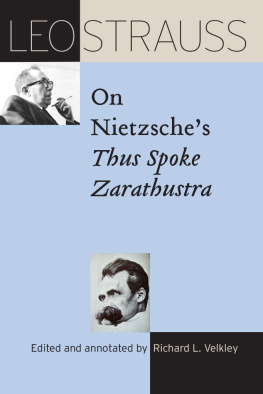
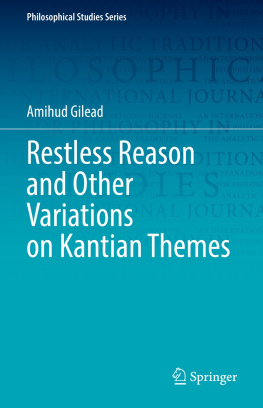
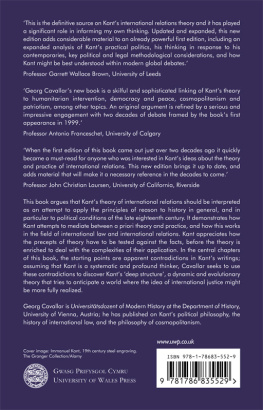
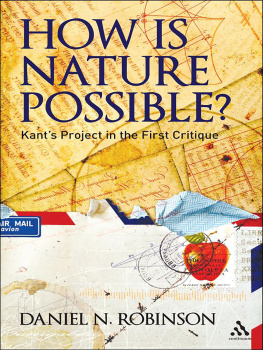
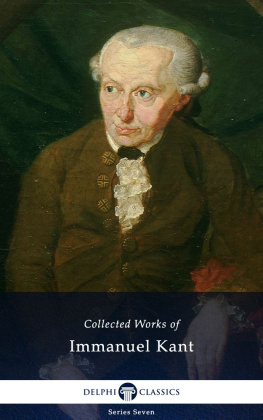
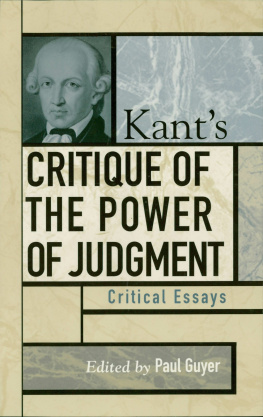
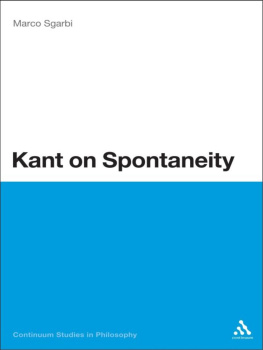
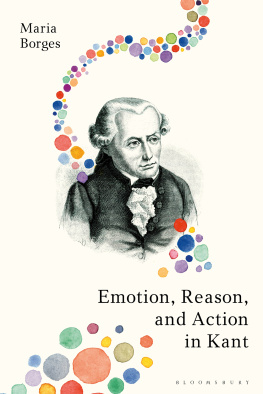
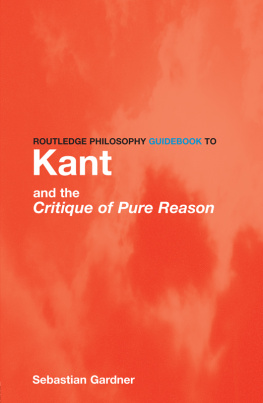
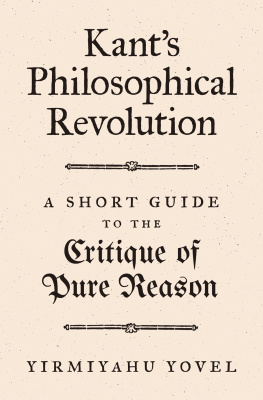


 This paper meets the requirements of ANSI/NISO Z39.48-1992 (Permanence of Paper).
This paper meets the requirements of ANSI/NISO Z39.48-1992 (Permanence of Paper).